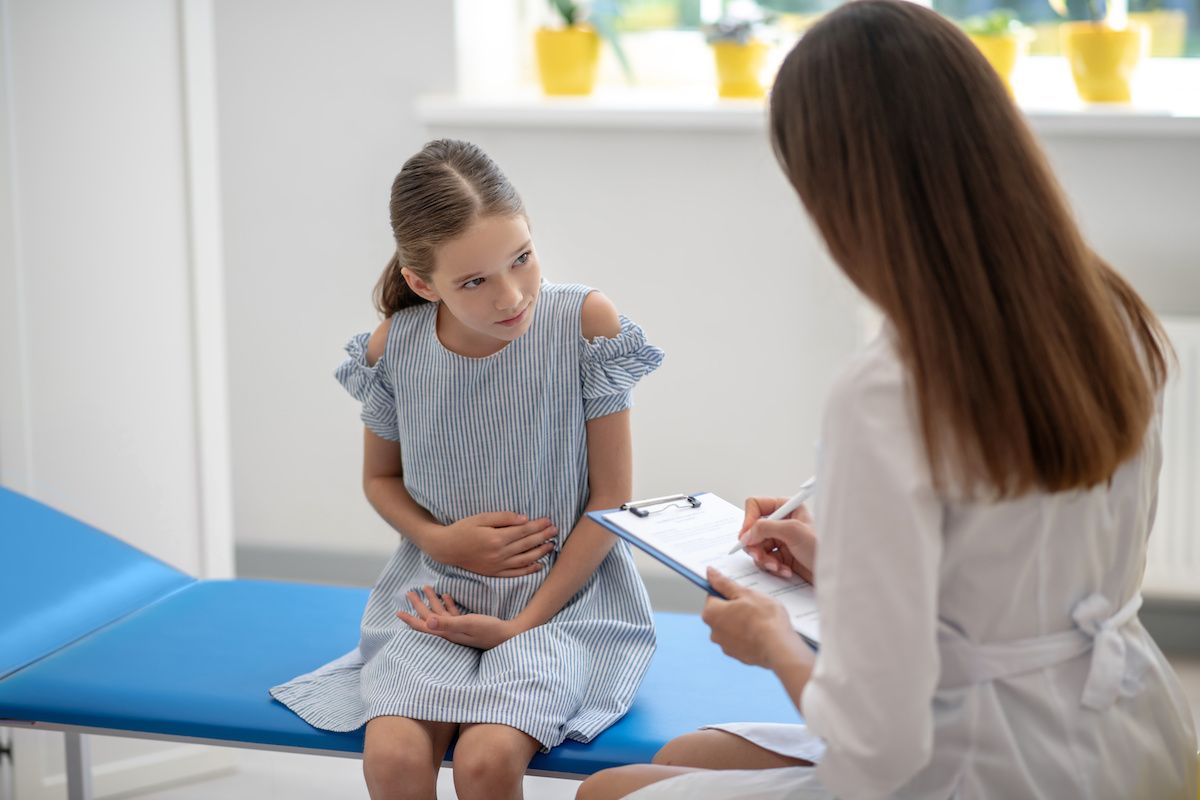- Bone Health
- Immunology
- Hematology
- Respiratory
- Dermatology
- Diabetes
- Gastroenterology
- Neurology
- Oncology
- Ophthalmology
- Rare Disease
- Rheumatology
Long-Term Durability and Cost-Effectiveness of Adalimumab Biosimilars in Pediatric IBD
A real-world study reveals that pediatric patients with IBD achieve high remission rates and cost savings using adalimumab biosimilars over time.
Pediatric patients with inflammatory bowel disease (IBD) treated with adalimumab biosimilars had “high durability and remission rates” at a lower cost of treatment, according to a real-world study in 2 European centers. The authors said their findings confirm the cost-effectiveness of adalimumab biosimilars in pediatric IBD.
The authors said their findings confirm the cost-effectiveness of adalimumab biosimilars in pediatric IBD. | Image credit: zinkevych - stock.adobe.com

According to the authors, although real-world studies have reported similar safety and effectiveness of adalimumab biosimilars to the reference product in adults with IBD, there is very little data from pediatric populations. Their study assessed the long-term durability of adalimumab biosimilars in pediatric IBD centers in Scotland and Sicily over up to 72 months, as well as effectiveness, safety and cost savings.
Adalimumab, a monoclonal antibody targeting tumor necrosis factor (TNF)-α, is used to treat IBD in both adults and children. Following the expiration of the originator’s (Humira) patent in 2018, biosimilars have become available in Europe, including ABP 501 (Amgevita), GP2017 (Hyrimoz), and SB5 (Hadlima).
A total of 130 patients,115 (88%) with Crohn disease (CD), 7 (5%) with ulcerative colitis (UC), and 8 (6%) with IBD unclassified (IBDU) were included. The mean age was 12.3 years, and patients used biosimilars ABP 501 (85%), GP2017 (14%), and SB5 (1%). About one-third (32%) of patients switched from the originator to 1 of the biosimilars, 80% of whom were in clinical remission at the time.
The probabilities of durability at 6, 12, 24, 26, and 54 months were 93%, 86%, 75%, 62%, and 57%. After a median follow-up of 26 months (IQR, 12-50; maximum, 72 months), 87 (67%) patients remained on adalimumab biosimilar treatment.
One-third of patients (33%) discontinued therapy, due to primary non-response (14%), secondary loss of response (37%), adverse events (AEs; 33%), IBD-related surgery (14%), and severe needle phobia (2%).
When analyzing potential factors associated with treatment failure, the investigators found patients who had previously been exposed to the adalimumab reference product had a lower risk of biosimilar treatment failure (HR, 0.51; 95% CI, 0.26-0.99; P = .047). Other factors, such as IBD subtype, perianal disease, or previous exposure to infliximab were not associated with treatment failure.
Clinical remission rate improved over time, from 39% at baseline, to 71% at 6 months and 72% at 12 months. The investigators also observed improvements in luminal remission, C-reactive protein (CRP) levels, and fecal calprotectin levels over time.
Based on therapeutic drug monitoring (TDM) data, patients who experienced treatment failure had lower drug concentrations at 6 months (10.7 μg/ml; IQR 7.6-12.0) than those who continued treatment (12.0 μg/ml; IQR, 10.4-15.9). Trough levels of at least 11.6 μg/ml at 6 months were associated with greater durability of adalimumab biosimilar therapy.
AEs occurred in 46 (36%) patients, which were mainly psoriasis (13%) and injection site reactions (13%), and 1 case of lymphoma. Of the 14 who discontinued due to AEs, 6 switched to the originator because of injection site reactions or difficulty with delivery. Of patients who experienced injection site pain, most (94%) were receiving ABP 501, and the rest were receiving GP2017.
The cost savings from using an adalimumab biosimilar in place of the reference product were estimated at 5,030 Euro per patient per year. According to the authors, this is the first real-world study assessing the long-term durability of adalimumab biosimilars in pediatric IBD. “Durability can be considered a general marker of treatment success, as it reflects overall effectiveness, AEs, and patient acceptance,” they wrote. They said the treatment persistence rate they observed is comparable to previous research, with a larger sample size and extended follow-up period, adding that the treatment persistence results were also similar to those found in adult patients with IBD.
Reference
Ancona S, Armstrong K, Longo C, Rabone R, Merrick V, Henderson P, Gandullia P, Wilson DC, Arrigo S, Russell RK. Adalimumab biosimilars demonstrate long-term durability and cost-effectiveness in paediatric inflammatory bowel disease: a real-world two-centre European cohort study. Biologics. 2025;19:265-279. doi:10.2147/BTT.S511248
Newsletter
Where clinical, regulatory, and economic perspectives converge—sign up for Center for Biosimilars® emails to get expert insights on emerging treatment paradigms, biosimilar policy, and real-world outcomes that shape patient care.
